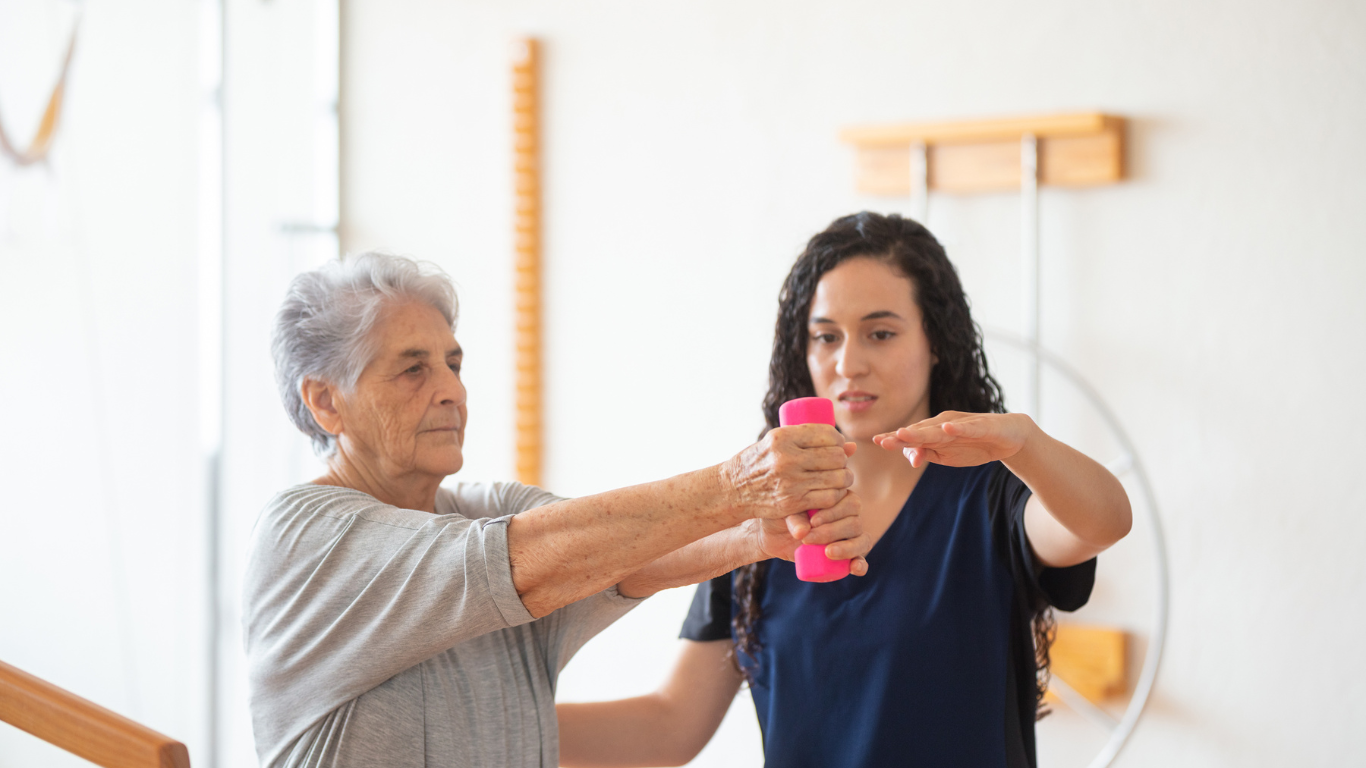Reclaiming Your Independence with Occupational Therapy

While physical therapy as part of a rehabilitation regime after a surgery or illness is somewhat easy to understand, for those who are no longer working, the idea of occupational therapy can be a little confusing. But if you look to the Cambridge dictionary’s definition of occupation being a regular activity or hobby, it can help clarify the benefits of occupational therapy.
What is Occupational Therapy?
Occupational therapy is a process that involves helping people at all ages maintain or recover the skills they need for daily activities that are meaningful and necessary. An occupational therapist (OT) educates and works with your family members and/or caregivers to ensure they understand their role in your care program. For example, based on your needs, an OT may help with things like:
- Showing you an easier way to do tasks like getting dressed
- Showing you how to safely get in and out of the shower
- Teaching you exercises to help improve your strength, flexibility or hand-eye coordination
- Doing an assessment to make sure your home is safe and well-lit
- Preventing falls by securing or removing throw rugs and getting rid of clutter
- Helping you get certain devices and teach you how to use them, such as a raised toilet seat, bath chair, cane, extended reach grabber, or pill organizer
When is Occupational Therapy Recommended?
Many conditions can affect a person’s ability to do the things they enjoy doing or need to do. Occupational therapy can help people with conditions such as:
- Alzheimer disease
- Arthritis
- Brain injury
- Chronic pain
- COPD (chronic obstructive pulmonary disease)
- Dementia
- Diabetes
- Multiple sclerosis
- Stroke
- Vision problems
Benefits of Occupational Therapy
While occupational therapy can be prescribed for anyone to help them manage or overcome physical, sensory, or cognitive challenges, this branch of health care is particularly beneficial to older adults. The following are some examples of the benefits:
Improved mobility and strength: Occupational therapists can help older adults regain the physical abilities they need to perform activities of daily living, such as walking, climbing stairs, and getting in and out of bed to help you maintain your independence and reduce the likelihood of falls.
Fall prevention and home safety: OTs may make recommendations to reduce fall risks around the house like rearranging furniture to create clearer walking paths, removing tripping hazards like loose rugs and installing brighter lights in hallways and stairways. In addition to home modifications, your OT could suggest exercises to improve balance and coordination.
Management of chronic conditions: Many older adults live with chronic conditions like arthritis, COPD and diabetes, which can make daily activities challenging. An occupational therapist might teach a someone with arthritis exercises to keep their joints flexible and reduce inflammation. Meanwhile, someone with COPD could work on breathing techniques to improve lung capacity. OTs can also provide guidance on managing medication schedules, monitoring symptoms and implementing lifestyle changes that support long-term health.
Improved cognition coping skills: For someone with cognitive decline — including dementia — OTs use cognitive exercises and memory aids to help seniors manage their cognitive decline. They can also teach families how to create routines and improve communication with loved ones.
Our Occupational Therapy Will Get You Back to What You Love
Awarded Best Short-term Rehabilitation by U.S. News and World Report and the Joint Commission’s National Quality Seal of Approval, you’ll find the rehabilitation services you need at Freedom Square. To learn more, use our Community Assistant chat feature, contact us here or call us today.




